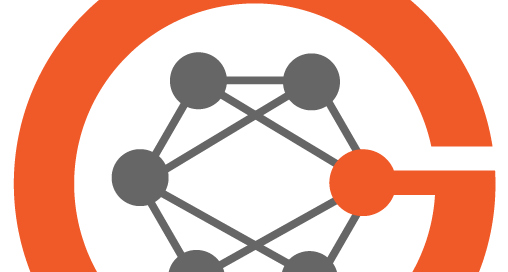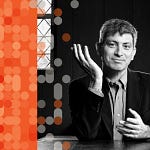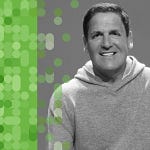There was so much to talk about—this is the longest Ground Truths podcast yet. Hope you’ll find it as thought-provoking as I did!
Transcript, with audio and external links, edited by Jessica Nguyen, Producer for Ground Truths
Video and audio tech support by Sinjun Balabanoff, Scripps Research
Eric Topol (00:00:05):
This is Eric Topol from Ground Truths, and I am delighted to have with me Holden Thorp, who is the Editor-in-Chief of the Science journals. We're going to talk about Science, not just the magazine journal, but also science in general. This is especially appropriate today because Holden was just recognized by STAT as one of the leaders for 2024 because of his extraordinary efforts to promote science integrity, so welcome Holden.
Holden Thorp (00:00:36):
Thanks Eric, and if I remember correctly, you were recognized by STAT in 2022, so it's an honor to join a group that you're in anytime, that's for sure, and great to be on here with you.
Eric Topol (00:00:47):
Well, that's really kind to you. Let's start off, I think with the journal, because I know that consumes a lot of your efforts and you have five journals within science.
Holden Thorp (00:01:02):
Oh, we have six.
Eric Topol (00:01:03):
Oh six, I'm sorry, six. There's Science, the original, and then five others. Can you tell us what it's like to oversee all these journals?
Overseeing the Science Journals
Holden Thorp (00:01:16):
Yeah, we're a relatively small family compared to our commercial competitors. I know you had Magdalena [Skipper]on and Nature has I think almost ninety journals, so six is pretty small. In addition to Science, which most people are familiar with, we have Science Advances, which also covers all areas of science and is larger and is a gold open access journal and also is overseen by academic editors, not professional editors. All of our other journals are overseen by professional editors. And then the other four are relatively small and specialized areas, and probably people who listen to you and follow you would know about Science Translational Medicine, Science Immunology, Science Signaling and then we also have a journal, Science Robotics which is something I knew nothing about and I learned a lot. I've learned a lot about robotics and the culture of people who work there interacting with them.
Holden Thorp (00:02:22):
So we have a relatively small family. There's only 160 people who work for me, which is manageable. I mean that sounds like a lot, but in my previous jobs I was a provost and a chancellor, and I had tens of thousands of people, so it's really fun for me to have a group where I at least have met everybody who works for me. We're an outstanding set of journals, so we attract an outstanding group of professionals who do all the things that are involved in all this, and it's really, really fun to work with them. At Science, we don't just do research papers, although that's a big, and probably for your listeners the biggest part of what we do. But we also have a news and commentary section and the news section is 30 full-time and many freelancers around the world really running the biggest general news operation for science that there is. And then in the commentary section, which you're a regular contributor for us in expert voices, we attempt to be the best place in the world for scientists to talk to each other. All three of those missions are just really, really fun for me. It's the best job I've ever had, and it's one I hope to do for many years into the future.
Eric Topol (00:03:55):
Well, it's extraordinary because in the four and a half years I think it's been since you took the helm, you've changed the face of Science in many ways. Of course, I think the other distinction from the Nature Journals is that it's a nonprofit entity, which shows it isn't like you're trying to proliferate to all sorts of added journals, but in addition, what you've done, at least the science advisor and the science news and all these things that come out on a daily basis is quite extraordinary as we saw throughout the pandemic. I mean, just reporting that was unparalleled from, as you say, all points around the world about really critically relevant topics. Obviously it extends well beyond the concerns of the pandemic. It has a lot of different functions, but what I think you have done two major things, Holden. One is you medicalized it to some extent.
Eric Topol (00:04:55):
A lot of people saw the journal, particularly Science per se, as a truly basic science journal. Not so much applied in a medical sphere, but these days there's more and more that would be particularly relevant to the practice of medicine, so that's one thing. And the other thing I wanted you to comment on is you're not afraid to speak out and as opposed to many other prior editors who I followed throughout my career at Science, there were pretty much the politically correct type and they weren't going to really express themselves, which you are particularly not afraid of. Maybe you could comment about if you do perceive this medicalization of science to some extent, and also your sense of being able to express yourself freely.
Capturing the Breakthroughs in Structural Biology
Holden Thorp (00:05:48):
Yeah, well, you're kind to say both of those things are certainly things we have worked at. I mean, I do come from a background, even though I'm trained as a chemist, most of what I did towards the latter end of my career, I mean, I did very basic biochemistry when I was a researcher, but the last part of my research career I worked in on development of a drug called Vivjoa, which is an alternative to the fluconazole family that doesn't have the same toxicity and is currently on the market for chronic yeast infection and hopefully some other things in the future when we can get some more clinical trials done.
Holden Thorp (00:06:35):
And I've hung around biotech startups and drug development, so it is part of the business that I knew. I think the pandemic really gave us an opening because Valda Vinson, who's now the Executive Editor and runs all of life sciences for us and policies for the journal, she was so well known in structural biology that most of the first important structures in Covid, including the spike protein, all came to us. I mean, I remember crystal clear February of 2020, she came in my office and she said, I got the structure of the spike protein. And I said, great, what's the spike protein? Turned out later became the most famous protein in the world, at least temporarily. Insulin may be back to being the most famous protein now, but spike protein was up there. And then that kind of cascaded into all the main protease and many of the structures that we got.
Holden Thorp (00:07:45):
And we seized on that for sure, to kind of broaden our focus. We had the Regeneron antibodies, we had the Paxlovid paper, and all of that kind of opened doors for us. And we've also, now we have two clinical editors at Science, Priscilla Kelly and Yevgeniya Nusinovich, and then the Insights section, somebody that you work with closely, Gemma Alderton, she is very fluent in clinical matters. And then of course we've had Science Translational Medicine and we seek continue to strengthen that. Science Immunology was very much boosted by Covid and actually Science Immunology is now, I think probably if you care about impact factors, the second highest specialized immunology journal after Immunity. I've put some emphasis on it for sure, but I think the pandemic also really helped us. As far as me speaking out, a lot of people maybe don't remember, but Don Kennedy, who was the editor in the early 2000s who had been the Stanford president, he was similarly outspoken.
Confronting Controversies
Holden Thorp (00:09:15):
It's funny, sometimes people who disagree with me say, well, Don Kennedy would never say anything like that. And then I can dig up something that Don Kennedy said that's just as aggressive as what I might've said. But you're right, Bruce Alberts was very focused on education, and each one of us has had our own different way of doing things. When Alan Leshner hired me and Sudip Parikh reinforced this when he came on, I mean, he wanted me to liven up the editorial page. He explicitly told me to do that. I may have done more of it than he was expecting, but Alan and Sudip both still remain very supportive of that. I couldn't do what I do without them and also couldn't do it without Lisa Chong, who makes all my words sound so much better than they are when I start. And yeah, it kind of fed on itself.
Holden Thorp (00:10:21):
It started with the pandemic. I think there was an inflection when Trump first said that Covid was just the flu, and when he said some really ridiculous things about the vaccine, and that's where it started. I guess my philosophy was I was thinking about people who, they've got a spouse at home whose job might be disrupted. They got children they've got who are out of school, and somehow they managed to get themselves to the lab to work on our vaccine or some other aspect of the pandemic to try to help the world. What would those people want their journal to say when they came home and turned the news on and saw all these politicians saying all this ridiculous stuff? That was really the sort of mantra that I had in my head, and that kind of drove it. And now I think we've sort of established the fact that it's okay to comment on things that are going on in the world. We're editorially independent, Sudip and the AAAS board, treat us as being editorially independent. I don't take that for granted and it's a privilege to, as I sometimes tell people, my apartment's four blocks from the White House, sometimes I'm over there typing things that they don't like. And that tradition is still alive in this country, at least for the time being, and I try to make the most of it.
Eric Topol (00:12:11):
Well, and especially as you already touched on Holden, when there's a time when the intersection of politics and science really came to a head and still we're dealing with that, and that's why it's been so essential to get your views as the leader of such an important journal that is publishing some of the leading science in the world on a weekly basis. Now, one of the things I do want to get into this other track that you also alluded to. You went from a chemist, and you eventually rose to Dean and chancellor of University of North Carolina (UNC) and also the provost of Washington University, two of our best institutions academically in the country. I would imagine your parents who were both UNC grads would've been especially proud of you being the chancellor.
Holden Thorp (00:13:05):
It's true. Yeah. Unfortunately, my father wasn't there to see it, but my mother, as I always tell people, my mother very much enjoyed being the queen mother of her alma mater.
On Stanford University’s President Resignation
Eric Topol (00:13:16):
Yeah, I would think so, oh my goodness. That gives you another perspective that's unique having been in the senior management of two really prestigious institutions, and this past year a lot has been going on in higher education, and you have again come to the fore about that. Let's just first discuss the Stanford debacle, the president there. Could you kind of give us synopsis, you did some really important writing about that, and what are your thoughts looking back on the student who happens to be Peter Baker's and Susan's son, two incredible journalists at the New York Times and New Yorker, who broke the story at the Stanford Daily as a student, and then it led to eventually the President's resignation. So, what were your thoughts about that?
Holden Thorp (00:14:16):
Yeah, so it's a complicated and sad story in some ways, but it's also fascinating and very instructive. Two of the papers were in Science, two of the three main ones, the other one was in Cell. And we had made an error along the way because Marc had sent a correction in which for some reason never got posted. We searched every email server we had everything we had trying to find exactly what happened, but we think we have a website run by humans and there was something that happened when the corrections were transmitted into our operations group, and they didn't end up on the website. So, one of the things I had to do was to say repeatedly to every reporter who wanted to ask me, including some Pulitzer Prize winners, that we had looked everywhere and couldn't find any reason why somebody would've intentionally stopped those corrections from posting.
Holden Thorp (00:15:36):
And one thing about it was I didn't want, Marc had enough problems, he didn't need to be blamed for the fact that we botched that. So I think people were maybe impressed that we just came out and admitted we made a mistake, but that's really what this area needs. And those things happened before I became the editor in chief, but I was satisfied that where that error happened was done by people who had no idea who Marc Tessier-Lavigne even was, but because of all that, and because we had to decide what to do with these papers, I talked to him extensively at the beginning of this, maybe as much as anybody, now that I look back on it. And I think that for him, the error that happened is very common one. You have a PI with a big lab.
Holden Thorp (00:16:33):
There are many, many incentives for his coworkers and yours to want to get high profile publications. And what we see is mostly at the end when you kind of know what's happening, some corners get cut doing all the controls and all of the last things that have to be done to go into the paper. And someone in his lab did that, and he didn't notice when the jails were sent in. The committee that investigated it later found something that I was certain at the beginning was going to be true, which is he didn't have any direct involvement in and making the problematic images or know that they were there. Every time we see one of these, that's almost always the story.
Holden Thorp (00:17:32):
And if he hadn't been the president of Stanford, he probably would've, I mean, a couple of the papers that were attracted might even could have been just big corrections. That's another topic we can talk about in terms of whether that's the right thing to do but because he was the president of Stanford, it triggered all these things at the university, which made the story much, much more complicated. And it is similar to what we see in a lot of these, that it's the institution that does the most to make these things bigger than they need to be. And in this case, the first thing was that young Theo Baker who I've talked on the phone extensively with, and I just had a long lunch with him in Palo Alto a couple weeks ago, it's the first time we ever met in person. He's finishing up his book, which has been optioned for a movie, and I've told him that I want Mark Hamill to play me in the movie because I don't know if you saw this last thing he did, Fall of the House of Usher but he was a very funny curmudgeonly.
Holden Thorp (00:18:46):
And so, I think he would be a lot like me dealing with Theo, but Theo did great work. Did everything that Theo write add up precisely. I mean, he was teaching himself a lot of this biochemistry as he went along, so you could always find little holes in it, but the general strokes of what he had were correct. And in my opinion, and Marc would've been better served by talking to Theo and answering his questions or talking to other reporters who are covering this and there are many excellent ones. This is something I learned the hard way when I was at North Carolina. It's always better for the President to just face the music and answer the questions instead of doing what they did, which is stand up this long and complicated investigation. And when the institutions do these long investigations, the outcome is always unsatisfying for everybody because the investigation, it found precisely what I think anybody who understands our world would've expected that Marc didn't know about the fraud directly, but that he could have done more to create a culture in his laboratory where these things were picked up, whether that's making his lab smaller or him having fewer other things to do, or precisely what it is, people could speculate.
Managing a Crisis at a University
Holden Thorp (00:20:37):
But of course, that's what always happens in these. So the report produced exactly what any reporter who's covered this their whole lives would've expected it to produce, but the people who don't know the intimate details of how this works, were not satisfied by that. And he ended up having to step down and we'll never know what would've happened if instead of doing all of that, he just said, wow, I really screwed this up. I'm responsible for the fact that these images are in here and I'm going to do everything I can to straighten it out. I'd be happy to take your questions. That's always what I encourage people to do because I was in a similar situation at North Carolina with a scandal involved in athletics and an academic department, and we did umpteen investigations instead of me just saying, hey, everybody, we cheated for 30 years. It started when I was in middle school, but I'm still going to try to clean it up and I'll be happy to answer your questions. And instead, we get lawyers and PR people and all these carefully worded statements, and it's all prolonged. And we see that in every research integrity matter we deal with and there are a lot of other things in higher education that are being weighed down by all of that right now.
Eric Topol (00:22:06):
Yeah. One of the things that is typical when a university faces a crisis, and we're going to get into a couple others in a moment, is that they get a PR firm, and the PR firm says, just say you're going to do an investigation because that'll just pull it out of the news, take it out of the news. It doesn't work that way. And what's amazing is that the universities pay a lot of money to these PR companies for crisis management. And being forthright may indeed be the answer, but that doesn't happen as best as we can see. I think you're suggesting a new path that might be not just relevant, but the way to get this on the right course quickly.
Holden Thorp (00:22:58):
Just on that, there's a person in that PR space who I really like. There are a few of them that are really good, and he's the person who helped me the most. And he used to refer doing the investigation as putting it on the credit card.
Eric Topol (00:23:16):
Yeah. Yeah, exactly.
Holden Thorp (00:23:17):
Okay, because you still have to pay the credit card bill after you charge something.
Eric Topol (00:23:25):
Yeah, better to write a check.
Holden Thorp (00:23:27):
It's better to write a check. Yes, because that 18% interest can add up pretty quickly.
Resignations of the Presidents at Harvard and Penn
Eric Topol (00:23:32):
I like that metaphor entirely appropriate. That's a good one. Now, in the midst of all this, there's been two other leading institutions besides Stanford where the president resigned for different reasons, at least in part one was at Harvard and one at Penn. And this is just a crisis in our top universities in the country. I mean three of the very top universities. So, could you comment about the differences at Harvard and Penn related to what we just discussed at Stanford?
Holden Thorp (00:24:09):
Yeah, so I don't know Claudine Gay, but I've exchanged emails with her, and I do know Liz Magill and I know Sally Kornbluth even better. Our kids went to middle school together because she was at Duke. And I think Sally is in good shape, and she did a little bit better in the hearings because I think she was a little more forthcoming than Liz and Dr. Gay were but I think also Liz was in a pretty weakened state already when she went in there. And I think that what happened that day, and it was a devastating day for higher education. I cleared my calendar, and I watched the whole thing and I couldn't sleep that night. And it was, I thought, oh my goodness, my way of making a living has just taken a death blow. I just felt so much compassion for the three of them, two of whom I knew, one of whom I could imagine having been through similar things myself.
Holden Thorp (00:25:20):
And I think what my take on the whole thing about free speech and the war and all this stuff is that higher education has got a problem, which is that we have promised to deliver a product that we can't really deliver, and that is to provide individualized experiences for students. So, I'm back on the faculty now at GW. I have 16 people in my class, I know every single one of them. I was teaching during the fall, last fall. I teach on Monday nights, which Yom Kippur was on a Monday night, which was before October 7th. And so, I knew precisely how many Jewish kids I had in my class because they had to make up class for that Monday night.
Holden Thorp (00:26:18):
I was basically able to talk to each one of them and make sure. And then GW is a very liberal university, so I had a whole bunch that were all the way on the other side also. I was just able to talk to each of them and make sure they had what they needed from the university. But the institutions don't really have luxury. They don't have somebody who's been doing this for 35 years teaching 16 people who can make sure they're getting what they need, but they write letters to all their students saying, you're going to join a diverse student body where we're going to give you a chance to express yourself and explore everything, but there's too many of them to actually deliver that. And none of them want to say that out loud. And so, what happens in a situation like this?
Holden Thorp (00:27:19):
And everybody says, well, don't send out the statements, don't send out the statements, but how else are you going to communicate with all those people? I mean, because the truth is education is a hands-on individualized deal. And so, the students who are experiencing antisemitism at Harvard or Penn or anywhere else, were feeling distress. And the university wasn't doing what they promised and attending to that, and similarly to the students who wanted to express themselves in the other direction. And so, what really needs to happen is that universities need to put more emphasis on what goes on in the classroom so that these students are getting the attention that they've been promised. But universities are trying to do a lot of research and you're at a place that's got a little simpler mission but some of these big complicated ones are doing urban development and they're trying to win athletics competitions, and they're running hotels and fire departments and police departments, and it's really hard to do all and multi, multi-billion dollar investment vehicles.
Holden Thorp (00:28:47):
It's really hard to do all that and keep the welfare of a bunch of teenagers up at the top of the list. And so, I think really what we need around this topic in general is a reckoning about this very point. Now as far as how to gotten through the hearing a little better, I mean what they said was technically correct, no question about that. But where they struggled was in saying things that would cause them to admit that they had failed at doing what they promised for the people who are feeling distressed. And again, that's kind of my mantra on all these things, whether it's student affairs or research integrity or anything else, the universities have made massive commitments to do probably more things than they can, and rather than fessing up to that, they just bury the whole thing in legalistic bureaucracy, and it's time for us to cut through a lot of that stuff.
Eric Topol (00:30:09):
I couldn't agree more on that.
Holden Thorp (00:30:10):
And in Claudine's case, I think the plagiarism thing, I wrote a piece in the Chronicle that just kind of tried to remind people that the kinds of plagiarism that she was punished for, in my opinion, too much of a punishment is stuff that we routinely pick up now with authenticate and other tools in scholarly publishing, and people just get a report that says, hey, maybe you want to reward this, and that's it. If it doesn't change the academic content of the paper, we hardly ever even pay attention to that. She was being subjected to a modern tool that didn't exist when she wrote the stuff that she wrote. And it's same thing with image analysis, right? When Marc Tessier-Lavigne made his papers, Elisabeth Bik wasn't studying images, and we didn't have proof fig and image twin to pick these things up, so we're taking today's tools and applying them to something that's 20 years old that was produced when those tools didn't exist. You can debate whether that matters or not, but in my opinion it does.
Generative A.I. and Publishing Science
Eric Topol (00:31:31):
Yeah, that's bringing us to the next topic I wanted to get into you with, which is AI. You've already mentioned about the AI detection of image, which we used to rely on Elisabeth as a human to do that, and now it can be done through AI.
Holden Thorp (00:31:51):
Well, it doesn't get everything, so I keep telling Elisabeth she doesn't have to worry about being put out of business.
Eric Topol (00:31:58):
But then there's also, as you said about text detection, and then there's also, as you've written in Science, the overall submission of papers where a GPT may have had significant input to the writing, not just to check the spelling or check minor things. And so, I want to get your views because this is a moving target of course. I mean, it's just the capabilities of AI have just been outpacing, I think a lot of expectations. Where do you see the intersection of AI and Science publishing now? Because as you said, it changes the ground rules for picking up even minor unintended errors or self-plagiarism or whatever, and now it changes the whole landscape considerably.
Holden Thorp (00:32:54):
Yeah. So, I think you said the most important thing, which is that it's a moving target, and you've been writing about this for medicine for longer than just about anybody, so you've been watching that moving target. We started off with a very restrictive stance, and the reason we did that was because we knew it would keep moving. And so, we wanted to start from the most restrictive possible place and then sort of titrate in the things that we allowed because we didn't want to go through the same thing we went through with Photoshop when it first came along. Like all these altered images that we keep talking about by far the most papers that surface are from the period between when Photoshop became a tool and when we finally had sort of a consensus as a community in terms of what was okay and what wasn't okay to do with your gels when you process the images.
Holden Thorp (00:33:55):
And we didn't want the same thing with words where we allowed people to use ChatGPT to write, and then a few years later decided, oh, this thing wasn't permissible, and then we have to go back and re-litigate all those papers. We didn't want to do that again. So, we started off with a pretty restrictive stance, which we've loosened once and we'll probably loosen more as we see how things evolve. What we keep looking for is for entities that don't have a financial interest to issue guidelines, so if it's another journal, especially a commercial journal that makes money on the papers, well, you can imagine that these tools are going to give us even more papers. And for a lot of these entities that charge by the paper, they have a financial incentive for people to use ChatGPT to write papers. We look for societies and coalitions of academics who have come together and said these things are okay.
Holden Thorp (00:35:04):
And the first one of those was when we decided that it was okay, for example, if you are not an English speaker natively to have ChatGPT work on your prose. Now there are lots of people who disagree about that ChatGPT is good at that. That's a separate matter, but we felt we got to a point, I forgot when it was a couple months ago, where we could amend our policies and say that we were going to be more tolerant of text that had been done by ChatGPT. As long as the people who signed the author forms realize that if it makes one of these hallucinating errors that it makes and it gets into the paper that's on them, whether that actually saves you time or not, I don't know.
Holden Thorp (00:36:03):
I also have my doubts about that, but that's kind of where we're going. We're watching these things as they go. We're still very restrictive on images and there was this debacle in this Frontiers paper a couple of weeks ago with a ridiculous image that got through. So right now, we're still not allowing illustrations that were generated by the visual counterparts of ChatGPT. Will we loosen that in the future? Maybe, as things evolve, so when we did our first amendment, some of the reporters, they're just doing their jobs saying, well, you can't make your mind up about this. And I'm like, no, you don't want us to make up our mind once and for all. And by the way, science is something that changes over time also. So, we're watching this develop and we expect everybody jokes about how we spend too much time talking about this, but I think everybody's gotten to the point now where they're realizing we're going to talk about it for years to come.
Eric Topol (00:37:17):
Oh my goodness, yes because we're talking about truth versus fake and this is big stuff. I mean, it affects whether it's the elections, whether it's every sector of our lives are affected by this. And obviously publishing in the leading peer review journal, it couldn't be more important as to get this right and to adjust, as you said, as more evidence, performance and other issues are addressed systematically. That does get me to self-correcting science, something else you've written about, which is kind of self-correcting as to how we will understand the use of large language models and generative AI. But this, you get into science in many different ways, whether it's through the celebrity idea, how it has to adapt and correct that there's a miscue from the public about when evolves and it's actually that science. So maybe you could kind of give us your perspective about you are continuing to reassess what is science as we'll get into more about that in a moment. Where are you at right now on that?
Holden Thorp (00:38:40):
Yeah, so my general sort of shtick about science is to remind people that it's done by human beings. Human beings who have all different kinds of different brains who come from different backgrounds, who have all the human foibles that you see in any other profession. And I think that unfortunately a lot of, and we brought some of this on ourselves, we've kind of taken on an air of infallibility from time to time or as having the final answer when, if you go back just to the simplest Karl Popper and Thomas Kuhn early writings in the philosophy of science, it's crystal clear that science is something that evolves. It's something done by sometimes thousands or even hundreds of thousands of millions of people depending on the topic. And it's not the contributions of any individual person hardly ever.
Holden Thorp (00:39:54):
But yet we continue to give Nobel prizes and hold up various individual scientific figures as being representative. They're usually representative of many, many people. And it's a process that continues to change. And as always point out, if you want to get a paper in science, it's not good to say, hey, here's something everybody thought and we tested it and it's still correct. That's usually not a good way to get a science paper. The right thing to do is to say, hey, the W boson might weigh more than we expected it to, or it turns out that evolution occurs in ways that we didn't expect, or that's how you get a science paper and that's how you get on the cover of Science. Those are the things that we look for, things that change the way people think about science. And so that's what we're all actively looking for, but yet we sometimes portray to the public that we always have everything completely figured out, and the journalists sometimes don't help us because they like to write crisp stories that people can get something out of. And we like to go on TV and say, hey, I got the answer.
Holden Thorp (00:41:23):
Don't wear a mask. Do wear a mask. This is how much the temperature is going to go up next year. Oh, we refined our, and it turns out it's another 10th of a degree this way or that way. I mean, that's what makes what we do interesting and embedded in that is also human error, right? Because we make errors in interpretation. We might see a set of data that we think mean one thing, but then somebody else will do something that helps us interpret it another way. In my opinion, that's certainly not misconduct. We hardly ever publish corrections or retractions over interpretation. We just publish more papers about that unless it's some very egregious thing. And then we also have greed and ambition and ego and lots of other things that cause people to make intentional errors that get most of the attention. And we have errors that are unintentional, but still may relate to fundamental data in the paper.
Holden Thorp (00:42:36):
So when you put all this together, the answer isn't to try to catch everything because there's no way in the world we're going to catch everything and we wouldn't want to, even if we could for some of it, because as John Maddox, who ran my competitor journal for many years in a brilliant way at Nature, someone once asked him how many papers in Nature were wrong? And he said, all of them, because all of them are going to be replaced by new information. And so, what we'd be better off trying to convince the public that this is how science works, which is much harder than just going to them with facts. I mean, that takes a lot of work and doing a better job of telling each other that it's okay when we have to change the record because the biggest thing that erodes trust in science is not the fact that we make mistakes, is that when it turns into a drama over whether we are going to correct the record or not, that's what all these, the Stanford case is probably the biggest in people's minds. But if you look at, we've had this behavioral economic stuff at Harvard, I have this superconductivity at Rochester, Dana Farber's having a big event right now. All of these things don't have to be this dramatic if we would do a better job of collaborating with each other on maintaining an accurate scientific record rather than letting ambition and greed and ego get in the way of all of it.
Who Is A Scientist?
Eric Topol (00:44:21):
Well, you got some important threads in there. The one thing I just would also comment on is my favorite thing in Science is challenging dogma because there's so much dogma, and that's obviously part of what you were getting into and many other aspects as well. But that's the story of Science, that nothing stands. If it does, then you're not doing a good job of really interrogating and following up on whatever is accepted at any particular moment in time. But your writings, whether it's in Science and editorials or science forever, your Substack, which are always insightful but I think one of the most recent ones was about, who is a scientist? And I really love that one because I'll let you explain. There are some people who have a very narrow view and others who see it quite differently. And maybe you could summarize it.
Holden Thorp (00:45:23):
Well, I had the privilege to moderate a panel at the AAAS meeting that included Keith Yamamoto, who was our outgoing president, Willie May, who was our incoming president, Peggy Hamburg, who ran the FDA and many, many other things. Kaye Husbands Fealing who was a social scientist, and Michael Crow, who was the president of Arizona State. These are all extraordinary people. And I just asked him a simple question, so who was the scientist? Because I think one thing that I see in my work, and you probably see in the communication work and writing that you do, that not all of our colleagues who work in the laboratory think that the rest of this stuff is science.
Holden Thorp (00:46:17):
And the place that breaks my heart the most is when somebody says, one of our professional editors isn't qualified to reject their paper because they don't have their own lab. Alright, well you've interacted with a lot of our editors, they read more papers than either one of us. They know more about what's going on in these papers than anybody. They are absolute scholars in every sense of the word and if someone thinks they're not scientists, I don't know who a scientist is. And so, then you can extend that to science communicators. I mean, those are obviously the problems we've been talking about, the people we need the most great teachers. If someone's a great science teacher and they have a PhD and they worked in lab and they're teaching at a university, are they still a scientist even if they don't have a lab anymore?
Holden Thorp (00:47:11):
So in my opinion, an expansive definition of this is the best because we want all these people to be contributing. In fact, many of the problems we have aren't because we're not good in the laboratory. We seem to be able to do a good job generating that. It's more about all these other pieces that we're not nearly as good at. And part of what we need to do is value the people who are good at those things, so I pose this to the panel, and I hope people go on and watch the video. It is worth watching. Keith Yamamoto was in the group that said, it's only if you're doing and planning research that you're a scientist. He knew he was going to be outnumbered before we went out there. We talked about that. I said, Keith, you're my boss. If you don't want me to ask that question, I won't. But to his credit, he wanted to talk about this and then Michael Crow was probably the furthest on the other side who said, what makes humans different from other species is that we're all scientists. We all seek to explain things. So somewhere in the middle and the others were kind of scattered around the middle, although I would say closer to Michael than they were to Keith.
Holden Thorp (00:48:33):
But I think this is important for us to work out because we want everybody who contributes to the scientific enterprise to feel valued. And if they would feel more valued if we called them scientists, that suits me but it doesn't suit all of our academic colleagues apparently.
Eric Topol (00:48:54):
Well, I mean, I think just to weigh in a bit on that, I'm a big proponent of citizen scientists, and we've seen how it has transformed projects like folded for structural biology and so many things, All of Us program that's ongoing right now to try to get a million participants, at least half of whom are underrepresented to be citizen scientists learning about themselves through their genome and other layers of data. And that I think may help us to fight the misinformation, disinformation, the people that do their own research with a purpose that can be sometimes nefarious. The last type of topic I wanted to get to with you was the University of Florida and the state of Florida and the Surgeon General there. And again, we are kind of circling back to a few things that we've discussed today about higher education institutions as well as politics and I wonder if we get some comments about that scenario.
What’s Happening in Florida?
Holden Thorp (00:49:59):
Yeah. Well, I'm coming to you from Orlando, Florida where I have a home that I've had ever since I moved to a cold climate, and I spent the whole pandemic down here. I observed a lot of things going on in the state of Florida firsthand. And I think in a way it's two different worlds because Florida does make a massive investment in higher education more than many other states and that has really not changed that much under Governor DeSantis despite his performative views that seem to be to the contrary. And so, I think it's important to acknowledge that Florida State and Florida and UCF and USF, these are excellent places and many of them have thrived in terms of their budgets even in this weird climate, but the political performance is very much in the other direction. This is where the Stop WOKE Act happened. This is where, again, I live in Orlando. This is a company town that Ron DeSantis decided to take on the Walt Disney Corporation is the second biggest city in Orlando, and it's a company town, and he took on the employer.
Holden Thorp (00:51:32):
It doesn't make a whole lot of political sense, but I think it was all part of his national political ambitions. And down at the base of this was this all strange anti-vax stuff. Now I got my first vaccines down here. I went to public places that were organized by the Army Corps of Engineers that were at public properties. It was at a community college here in Orlando, was extremely well organized. I had no problem. I was there 10 minutes, got my vaccines. It was extremely well organized but at the same time, the guys on TV saying the vaccine's not any good. And he hires this person, Joseph Ladapo, to be his Surgeon General, who I think we would both say is an anti-vaxxer. I mean he just recently said that you didn't need to get a measles vaccine and then in the last couple of days said, if you're unvaccinated and you have measles, you don't have to quarantine for 21 days. Now really would be disastrous if measles came back. You know a lot more about that than I do but I'm a generation that had a measles vaccine and never worried about measles.
Holden Thorp (00:52:59):
So the part of it that I worry about the most is that this person, the Surgeon General, also has a faculty appointment at the University of Florida. And you can see how he got it because his academic resume has been circulated as a result of all of Florida's public records laws and he has a very strong, credible resume that would probably cause him to get tenure at a lot of places. The medical faculty at Florida have tried to assert themselves and say, we really need to distance ourselves from him, but the administration at the University of Florida has not really engaged them. Now, I did ask them last week about the measles thing. I was going to write about it again, and I wrote to them and I said, if you guys aren't going to say anything about what he is saying about the measles, then I'm going to have another editorial.
Holden Thorp (00:54:05):
And they sent me a statement, which I posted that you probably saw that they still didn't condemn him personally, but they did say that measles vaccination was very important, and it was a fairly direct statement. I don't know if that will portend more stronger words from the University of Florida. Maybe now that their president is somebody who's close to the governor, they'll feel a little more comfortable saying things like that. But I think the bigger issue for all of us is when we have academic colleagues who say things that we know are scientifically invalid, and this always gets to the whole free speech thing, but in my opinion, free speech, it is within free speech to say, yes, all these things about vaccines are true, but I still don't think people should be compelled to get vaccinated. That's an opinion. That's fine. But what's not an opinion is to say that vaccines are unsafe if they've been tested over and over again and proven to be effective.
Academic Freedom
Holden Thorp (00:55:24):
That's not an opinion. And I personally don't think that that deserves certainly to be weighted equally with the totality of medical evidence. I think that it's within bounds for academic colleagues and even institutions to call out their colleagues who are not expressing an opinion, but are challenging scientific facts without doing experiments and submitting papers and having lots of people look at it and doing all the stuff that we require in order to change scientific consensus. And this happens in climate change in a very parallel way. I mean, it's an opinion to say the climate is changing, humans are causing it, but I still don't think we should have government regulations about carbon. I think we should wait for the private sector to solve it, or I don't think it's going to have as bad of an effect as people say. Those are policy debates that you can have.
Holden Thorp (00:56:28):
But alleging that climate scientists are falsifying their projection somehow when they're not is in my opinion, not covered by free speech. And I think the best evidence we had of this is this recent verdict with Michael Mann, where it was the people who were criticizing him were found to be defamatory when they said that he committed research fraud. They could say he's exaggerating the threat. They could say they could dislike his style. He does have a very bombastic style. They can say all kinds of things about their opinions about him personally but if you accuse him of committing research fraud, and the paper that was in question was one of the most highly litigated papers of all time. It's been investigated more times than you can count. That's not something that's protected by free speech because it's defamatory to say that, and the jury found that. I think we have a lot of work to do to get within our own world, our colleagues, to get their arms around these two forms of debate.
Eric Topol (00:57:51):
Right. Well, I think this is, again, another really important point you're making during the pandemic parallel to the Michael Mann climate change case is that leading universities, as we recently reviewed in a podcast with Jonathan Howard, who wrote a book about this leading universities like Stanford, UCSF, Johns Hopkins and many others, didn't come out about the people that were doing things, saying things that were truly potential public harm. Not like you're saying, expressing an opinion with the truth, but rather negating evidence that was important to keep people protected from Covid. This is a problem which is thematic in our discussion I think Holden, is that universities have to get with it. They have to be able to help not put things on the credit card, be very transparent, direct quick respond, and not hide behind worried about social media or journalists or whatever else. This has been an incredible discussion, Holden, I got into even more than I thought we would.
Eric Topol (00:59:15):
You're a phenom to defend the whole science landscape that is challenging right now. I think you would agree for many reasons that we've discussed, and it affects education in a very dramatic, serious way. I want to thank you all that you're doing at Science with your team there to lead the charge and stand up for things and not being afraid to stimulate some controversies here and there. It's good for the field. And so, I hope I didn't miss anything and this exhaustive, this is the longest podcast I've done on Ground Truths, I want you to know that.
Holden Thorp (00:59:59):
Well, I'm flattered by that because you've had some great people on, that's for sure. And thank you for all you're doing, not just in science, but to spread the word about all these things and bring people together. It means a lot to all of us.
Eric Topol (01:00:15):
Oh, much appreciated. And we'll convene again soon to discuss so many dimensions of what we just have been reviewing and new ones to come. Thanks very much.
Holden Thorp (01:00:25):
Okay. Always good talking to you.
*******************************************************
Thanks for listening or reading this episode of GT.
Please share if you found this podcast informative.
Ground Truths is open-access. All content (newsletters and podcasts) is free.
All proceeds from voluntary paid subscriptions support Scripps Research and have provided major funding for our summer internship program.













Share this post